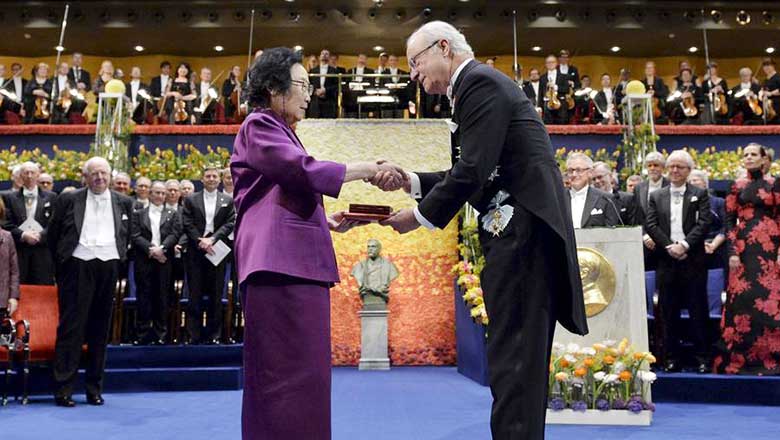Hello, is it me you're looking for?
Updated: 2015-12-12 09:10
By Yang Yang(China Daily)
|
||||||||
Fanciful
If all this sounds extremely fanciful, the fact that it is not far from reality can be gauged any day in the wee hours when more than 50,000 Chinese are likely to be engaged in conversation with Microsoft's chatbot Xiaobing online. Xiaobing, named after the search engine Bing, is described as an adorable, naughty 17-year-old girl who has a sweet voice, and who is specifically targeted at the Chinese market.
She has about 2.5 million followers on Sina Weibo. Xiaobing made her debut there last year before apparently locking herself in her bedroom for a year, a sulking fit brought on by a commercial dispute between WeChat's owner Tencent and Xiaobing's parents, Microsoft. On the day in August that Xiaobing reappeared on WeChat after that tiff had been settled she answered 15 million questions.
Xiaobing and her acolytes flirt, fight, chat, play games, share pictures with each other and say "good night" to each other, and Xiaobing has even been known to throw the occasional dirty word into the conversation. This multi-talented lady sings too, her repertoire including a cover of Shinian (10 Years) by the Hong Kong singer Eason Chan and a rendering of the patriotic song Wohewodezuguo (My Country and I).
One day recently Xiaobing was spotted asking for advice on Weibo about what pet she should keep, and for Beijingers suffering from heavy smog, she helpfully told them that if she coughed while she was talking it meant they were in for continuing smog for a couple of days.
So natural does some of what she utters seem-including consoling you and offering help if you tell her a relationship you were in has broken up-that some skeptics have questioned whether she really is a robot.
Siri, the voice assistant that comes with Apple mobile devices, can talk to people too, but this bi-gender (you get to choose between a male and a female voice) is built upon a set of rules that conform to the logic of human conversation. Xiaobing, on the other hand, responds based on an artificial neural network that imitates the working mode of neural network in humans, allowing robots to explore the complicated structures of conversations from data of Chinese searches on Bing.
If you ask Xiaobing a question, she will look for similar questions from Bing's big data and pick up from answers given online one that she "feels" most fits the context.
Other Internet companies around the world are also working on artificial intelligence.

 Nobel Prize 'to spur TCM development'
Nobel Prize 'to spur TCM development'
 US returns 22 recovered Chinese artifacts
US returns 22 recovered Chinese artifacts
 Internet makes life in Wuzhen more convenient
Internet makes life in Wuzhen more convenient
 Miss World contestants at Sanya orchid show
Miss World contestants at Sanya orchid show
 AP photos of the year 2015
AP photos of the year 2015
 Miss World contestants visit welfare center in Hainan
Miss World contestants visit welfare center in Hainan
 Giant pandas brave the cold by settling in freezing north
Giant pandas brave the cold by settling in freezing north
 World Internet Conference host Wuzhen: Charming water town
World Internet Conference host Wuzhen: Charming water town
Most Viewed
Editor's Picks

|

|

|

|

|

|
Today's Top News
Shooting rampage at US social services agency leaves 14 dead
Chinese bargain hunters are changing the retail game
Chinese president arrives in Turkey for G20 summit
Islamic State claims responsibility for Paris attacks
Obama, Netanyahu at White House seek to mend US-Israel ties
China, not Canada, is top US trade partner
Tu first Chinese to win Nobel Prize in Medicine
Huntsman says Sino-US relationship needs common goals
US Weekly

|

|








